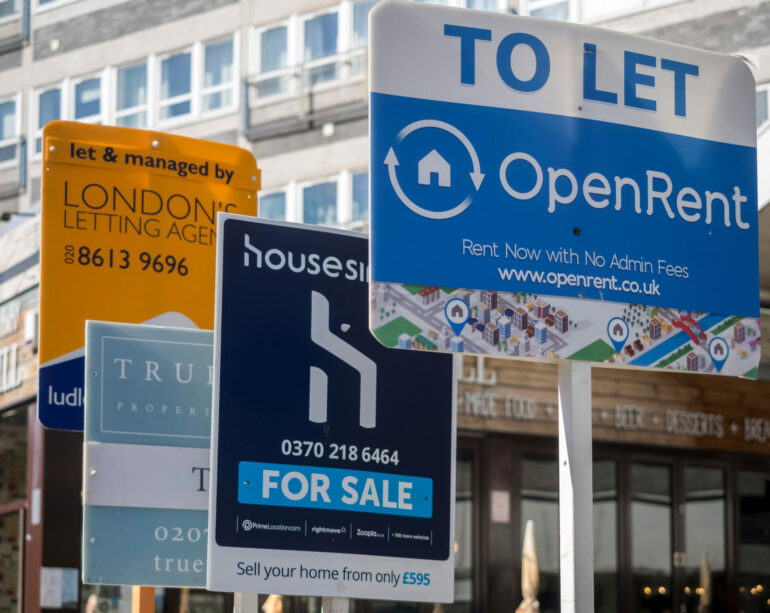The UK property market is facing an unprecedented shift as higher interest rates are expected to impact rental prices more than house prices, according to recent forecasts.
Data suggests that by 2026, rents will have surged by 25%, while house prices are projected to grow only by 5.5%.
The Office for National Statistics (ONS) House Price Index for the last quarter of 2023 is predicted to show a 2.5% decline in average house prices across Great Britain. Adjusted for inflation, this equates to an annual fall of 7.4%. Despite this, predictions for 2024 indicate that house prices will stabilise with a 0.0% growth in Q4 and slowly recover thereafter, with a 3.0% rise in Q4 2025 and 5.0% in Q4 2026.
Between 2023 and 2024, average house prices in Great Britain will have fallen by nearly 10% when adjusted for inflation. Over the next four years, this will contribute to an overall decline of around 5% in real house prices.
London is expected to buck the trend, with a 5.0% annual price growth starting in 2025. Between 2023 and 2026, London is projected to see the highest growth at 11.5%, whereas prices in Wales are expected to remain flat.
In terms of transactions, 2023 is forecasted to see a decline from 1.23 million completions in 2022 to just below 1.0 million. By 2025, transaction numbers are expected to recover to pre-Covid norms, largely due to lower mortgage rates. However, the new standard for the property market is expected to lie between 1.2 million and 1.3 million transactions annually, taking into account higher interest rates.
On the rental front, forecasts indicate an 8% increase in average rent for newly let properties in Great Britain in Q4 2023, followed by a 7% increase in Q4 2024, and a 5% rise in both Q4 2025 and 2026. London is expected to outpace the national average with rents increasing by 9% in 2023 and 8% in 2024.
Aneisha Beveridge, head of research at Hamptons, said: “Despite economic pressures like rising rates and the cost-of-living crunch, we’re not looking at a massive crash in house prices.
“It’s more likely to be a gradual decline, similar to the U-shaped downturn we saw in the early ’90s, rather than the V-shaped crash and recovery we experienced in 2008.”
Beveridge also touched on the effect on the rental market, stating: “The Bank of England’s measures to control inflation are disproportionately affecting the rental market. There are long-term supply issues and rising costs for landlords, which will keep putting upward pressure on rents.”



